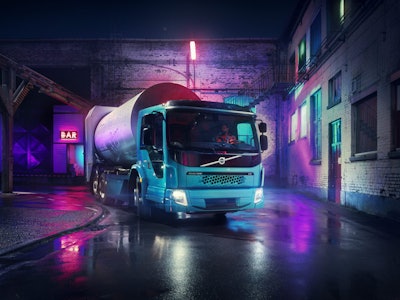
Volvo Trucks announced Thursday it expects to begin all-electric truck demonstrations in California next year with commercialization to follow in 2020.
The California Air Resources Board (CARB) has preliminarily awarded $44.8 million to California’s South Coast Air Quality Management District (SCAQMD) for the Volvo LIGHTS (Low Impact Green Heavy Transport Solutions) project – a partnership between the Volvo Group, SCAQMD, and industry leaders in transportation and electrical charging infrastructure.
Volvo Trucks will deploy eight multi-configuration battery Class 8 electric demonstration units (GVW +15 tons), and an additional 15 precommercial and commercial units, throughout California’s South Coast Air Basin.
The Volvo LIGHTS project will involve 16 partners, and transform freight operations at the facilities of two U.S. trucking fleets. Volvo LIGHTS is part of California Climate Investments, a statewide initiative that puts billions of Cap-and-Trade dollars to work reducing greenhouse gas emissions, strengthening the economy and improving public health and the environment – particularly in disadvantaged communities.
“This is an excellent opportunity to show the end-to-end potential of electrification,” said Peter Voorhoeve, President of Volvo Trucks North America. “From solar energy harvesting at our customer locations, to electric vehicle uptime services, to potential second uses for batteries, this project will provide invaluable experience and data for the whole value chain.”
The demonstration units will be based on the technology currently being used in the Volvo FE Electric, which Volvo Trucks presented in May and will begin selling in Europe in 2019.
A variety of smart technologies will be used – including remote diagnostics, geofencing, and the company’s web-based service management platform – to monitor all truck performance aspects of the project, and maximize vehicle uptime.
The project will reduce an estimated 3.57 tons of air pollutants and 3,020 tons of greenhouse gases annually.








